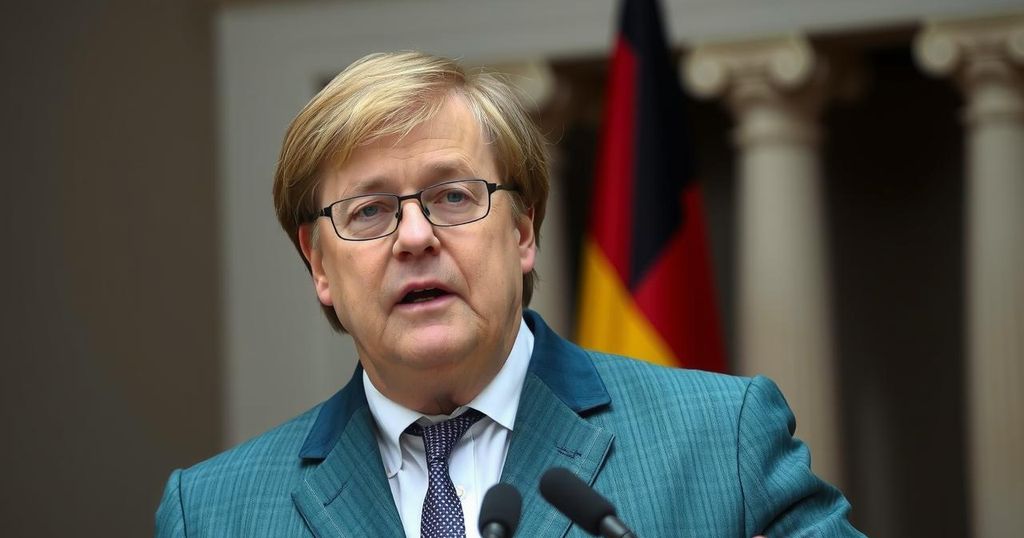German President Steinmeier Calls Early Elections Following Government Collapse

German President Frank-Walter Steinmeier has dissolved the parliament and scheduled elections for February 23 following the collapse of Chancellor Olaf Scholz’s government. This decision comes amid rising concerns over national security and immigration, particularly after a violent incident at a Christmas market. Current polls show the conservative CDU/CSU leading, with significant political and economic challenges ahead for the incoming government.
On Friday, German President Frank-Walter Steinmeier announced the dissolution of the parliament and confirmed the early general election date of February 23 following the collapse of Chancellor Olaf Scholz’s coalition government. The dissolution comes amid intense internal conflicts on reviving Germany’s economy and heightened discussions around security and immigration following a tragic car-ramming incident that occurred at a Christmas market in Magdeburg, resulting in five fatalities and over 200 injuries.
President Steinmeier stressed the importance of maintaining “political stability” and urged all parties involved in the upcoming election to conduct their campaigns with respect and integrity. The perpetrator of the aforementioned attack, Taleb al-Abdulmohsen, has been arrested, with allegations of his holding “Islamophobic” views, although his precise motives remain unclear. In response to the incident, Chancellor Scholz called for national unity and resilience against hatred.
Current polling indicates the conservative CDU/CSU leading with approximately 32 percent under Friedrich Merz, while the far-right Alternative for Germany (AfD) follows at 19 percent. Scholz’s Social Democrats have dropped to just 15 percent, necessitating the early elections after the collapse of their coalition on November 6. The SPD is set to remain in a caretaker role until a new government is formed.
President Steinmeier highlighted the myriad challenges that the new government will encounter, including economic instability, ongoing conflicts in the Middle East and Ukraine, as well as ongoing debates surrounding immigration and climate change. Both the CDU and SPD are committed to supporting Ukraine against Russia, with discussions ongoing regarding Germany’s defense spending.
In economic matters, both parties are vying to revitalize Germany’s economy amidst differing views on fiscal policy and significant infrastructure investment. On climate and energy issues, differing proposals reflect divergent party priorities, with the SPD advancing renewable energy initiatives and the CDU contemplating the potential reactivation of decommissioned nuclear power plants.
This political development comes in the wake of significant internal disputes within Chancellor Scholz’s coalition government focused on addressing economic recovery efforts. The recent violent attack at a Christmas market has intensified debates around immigration and national security, which have become focal points in German political discourse. With rising support for conservative and far-right parties, the upcoming election represents a critical juncture for Germany amid pressing socio-economic challenges and international conflicts.
In summary, the dissolution of the German parliament by President Steinmeier and the announcement of early elections on February 23 reflect the need for political stability in light of recent government turmoil. As parties prepare for the electoral campaign, pivotal issues such as security, immigration, economic revitalization, and climate change will dominate discussions. The significant shift in poll standings indicates a potential reshaping of the political landscape following the election as new leadership will have to navigate numerous domestic and international challenges.
Original Source: www.france24.com








